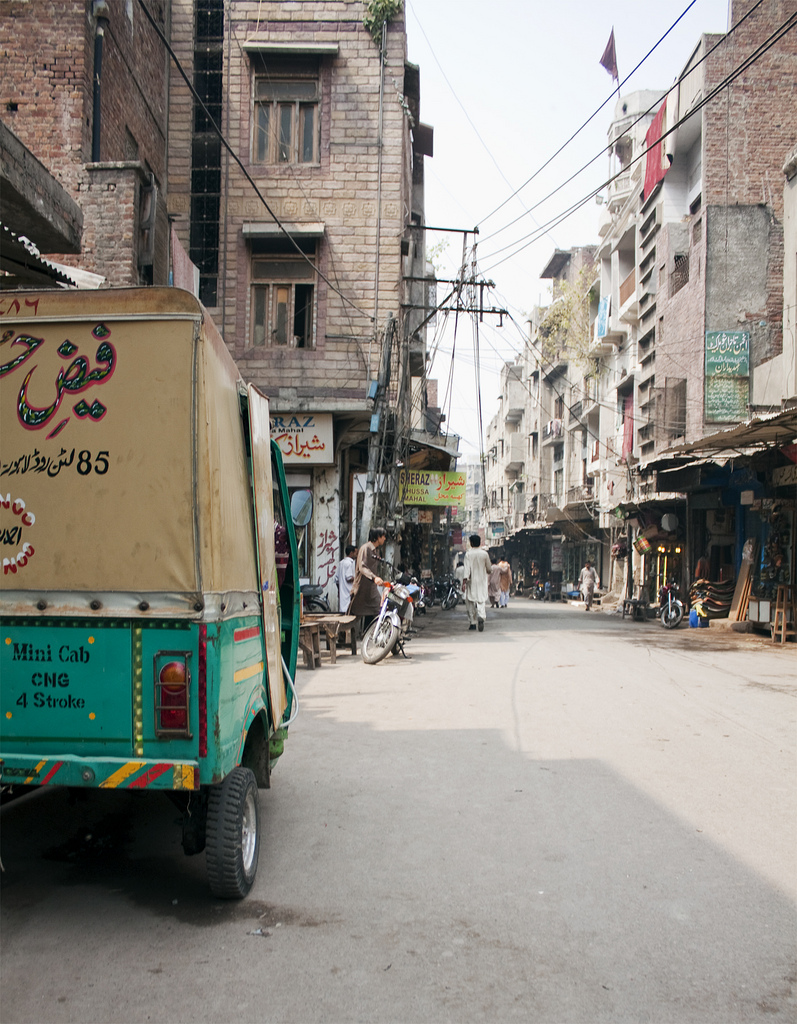“Urban poverty is on a persistent rise in Pakistan”
February 17th, 2014 The stereotype of rural poverty has been turned on its head in Pakistan, where urban poverty is a dire problem that needs intervention through new government policies, writes Naseema Perveen, 22, a Commonwealth Correspondent from Islamabad in Pakistan.
The stereotype of rural poverty has been turned on its head in Pakistan, where urban poverty is a dire problem that needs intervention through new government policies, writes Naseema Perveen, 22, a Commonwealth Correspondent from Islamabad in Pakistan.
Pakistan has been reported to be a place which is dangerous for human life; it faces a range of challenges from lack of good governance to inequality in the distribution of wealth.
Poverty rises as a consequence of these challenges, and it severely affects Pakistan as a whole. However, according to the annual report recently issued by the State Bank of Pakistan, the population of the urban areas is poorer than that of rural areas.
This is as a result of poor economic growth, in addition to the high influx of population to the urban areas. The distribution of resources in urban areas is more highly skewed than in rural areas, with 60 per cent of resources going to just 20 per cent of the population in urban areas. In contrast this is not the case in rural area. It is worth mentioning here that the traditional perception of the urban and rural divide on the basis of economic prosperity is no longer application in recent times.
Since 2008, the country has been facing economic growth at a pace as low as three per cent annually, and as a result the economy has remained sluggish. An average economic growth rate of just three per cent a year is not strong enough to absorb the high influx of youth looking for jobs. On the other hand the wide ranging impact of unemployment has forced a bigger portion of the urban population into poverty. In addition to that alarming situation the savings ratio of the economy as a whole has vanished. As reported by the State Bank of Pakistan, for the FY-13 the national savings declined to 13.8pc, which is a very bad indicator indeed.
These facts and the statistics are enough to give a true picture of our economy. The government is required to take immediate measures which could at least initiate an economic revival. It must take serious measures in order to pursue stronger economic growth, to reduce poverty and to improve human development.
For this reasons it needs to consult experts, rather than relying on self-proclaimed economic rainmakers who have been replicating the ineffective policies of the past. This is how we can ‘End Poverty in Pakistan’.
photo credit: lukexmartin via photopin cc
………………………………………………………………………………………………………………
About me:
I am a blogger, writer, and a social person. I am a responsible, trust worthy and friendly person. My aim of writing is to address the social issues, many of which remain unnoticed.
Currently I am a student of Economics. I aspire to make my career in social development as a social worker. I have passion to work with people from all walks of life and I believe social development is only possible through common effort and consultation.
………………………………………………………………………………………………………………
Opinions expressed in this article are those of the author and do not necessarily represent the views of the Commonwealth Youth Programme. Articles are published in a spirit of dialogue, respect and understanding. If you disagree, why not submit a response?
To learn more about becoming a Commonwealth Correspondent please visit:
http://www.yourcommonwealth.org/submit-articles/commonwealthcorrespondents/
………………………………………………………………………………………………………………




